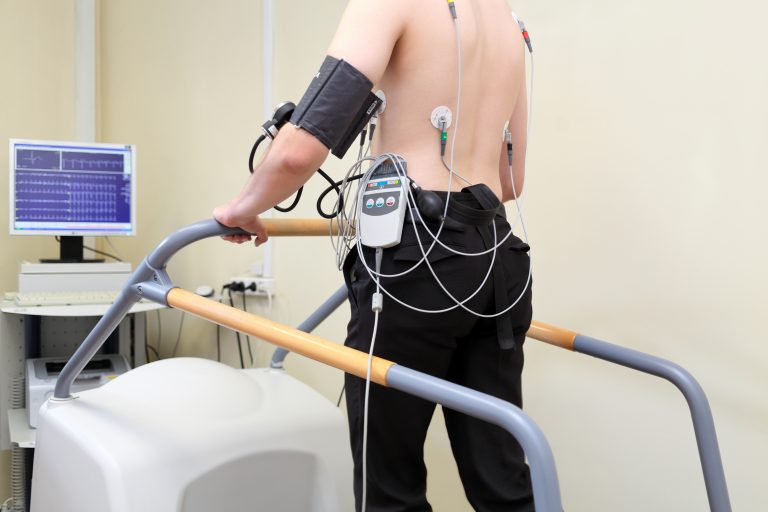TMT Test in Bangalore: Complete Guide to the Treadmill Stress Test
Are you looking for a reliable TMT test in Bangalore to evaluate your heart’s performance? The Treadmill Test, or TMT, is one of the most effective and non-invasive ways to assess how your heart functions under stress. In a bustling city like Bangalore, where lifestyle-related cardiac issues are increasingly common, knowing where and why to get a TMT test done is crucial. This article dives deep into what the test is, how it works, what to expect, and why it’s so important for your health.
What is a TMT Test?
A TMT (Treadmill Test) measures how your heart responds to physical exertion. During the test, you walk on a treadmill while your heart rate, blood pressure, and ECG are monitored. The goal is to identify abnormalities that might not appear when your heart is at rest. It helps doctors detect coronary artery diseases, irregular heart rhythms, and other cardiac issues.
The TMT test in Bangalore is commonly prescribed by cardiologists when a patient shows symptoms such as chest pain, breathlessness, or unexplained fatigue. It is also recommended for individuals with a high risk of heart disease due to lifestyle factors or family history.
Why is the TMT Test Important?
Heart diseases often develop silently, showing symptoms only when the condition becomes severe. The TMT test acts as an early warning system. By pushing your heart to work harder, doctors can observe how efficiently blood flows to the muscles.
Key Benefits:
- Detects early signs of heart disease
- Evaluates the effectiveness of heart medications or procedures
- Helps plan safe exercise programs
- Assesses overall cardiovascular health
With Bangalore’s fast-paced lifestyle, stress levels are on the rise, making this test a preventive tool for many urban professionals.
How is the TMT Test Conducted?
The TMT test in Bangalore is conducted in a clinical environment under the supervision of experienced technicians and cardiologists. Here’s a simple step-by-step breakdown of the process:
Step 1: Preparation
- Electrodes are attached to your chest, arms, and legs.
- A baseline ECG and blood pressure reading are recorded.
- Comfortable clothing and shoes are recommended for the test.
Step 2: The Treadmill Phase
- You’ll start walking on a treadmill at a slow pace.
- Every few minutes, the speed and incline increase to raise your heart rate.
- Throughout, ECG and blood pressure readings are continuously monitored.
Step 3: Post-Test Observation
- Once the test is complete or stopped, you’ll rest while doctors observe your recovery.
- The results help determine if your heart is receiving sufficient oxygen and blood during physical activity.
Who Should Take the TMT Test?
- Experience frequent chest pain or shortness of breath
- Have a family history of heart problems
- Lead a sedentary or stressful lifestyle
- Are overweight or diabetic
- Are planning to start a vigorous exercise routine
How to Prepare for a TMT Test
Proper preparation ensures accurate results. Here’s what you should do:
- Avoid eating heavy meals at least 3 hours before the test.
- Wear comfortable athletic shoes and loose-fitting clothes.
- Refrain from consuming caffeine or smoking before the test.
- Inform your doctor about any medications you’re taking.
The TMT test in Bangalore clinics usually provide detailed pre-test instructions to ensure safety and accuracy.
Interpreting the TMT Test Results
After the test, a cardiologist analyzes your ECG patterns, heart rate, and blood pressure responses.
Possible Outcomes:
- Normal Result: Your heart responds well to exercise, showing no signs of restricted blood flow.
- Abnormal Result: Indicates possible coronary artery blockages or arrhythmias.
- Borderline Result: May require further investigation such as an echocardiogram or angiography.
Risks and Safety of the TMT Test
The TMT test is safe for most people. However, mild symptoms such as dizziness or shortness of breath may occur, which is why trained professionals supervise the test closely. Emergency equipment and medical assistance are always on standby.
In well-equipped medical centers, such as those offering the TMT test in Bangalore, patient safety is the top priority, ensuring peace of mind for those undergoing the procedure.
Cost of TMT Test in Bangalore
The price of a TMT test in Bangalore varies depending on the diagnostic center and facilities. On average, it ranges between ₹1,000 to ₹2,500. Some premium healthcare centers may charge slightly higher but offer advanced ECG monitoring systems and faster reporting. Always choose a reputed and certified lab to ensure accuracy and reliability.
Conclusion
If you’re concerned about your heart health or want to take preventive steps against cardiovascular diseases, the TMT test in Bangalore is an essential diagnostic tool. It’s quick, non-invasive, and provides valuable insights into how your heart performs under stress. Regular cardiac screenings, especially for individuals with risk factors, can help detect issues early and prevent serious heart conditions. Take a proactive step today toward a healthier future — your heart deserves it.
Frequently Asked Questions (FAQs)
1. What is a treadmill stress test used for?
A treadmill stress test helps determine how well the heart functions during physical activity. It identifies issues like coronary artery disease or irregular heart rhythms.
2. How long does the treadmill test take?
The entire process usually takes about 30 to 45 minutes, including preparation, exercise, and recovery time.
3. Is the treadmill test painful?
No, the test isn’t painful. You might feel tired or short of breath, but the process is completely safe and monitored by professionals.
4. Can I eat before a treadmill stress test?
It’s best to avoid eating heavy meals at least three hours before the test. A light snack may be acceptable if your doctor allows it.
5. What should I wear during the test?
Wear comfortable, loose clothing and sports shoes to make walking on the treadmill easier and safer.
6. Can medications affect my test results?
Yes. Some medications may influence heart rate and blood pressure, so always inform your doctor about any drugs you’re taking.
7. Are there any side effects of the treadmill test?
Most people complete the test without issues. Rarely, mild dizziness or fatigue may occur, but medical staff are present to ensure safety.
8. Who interprets the results of the test?
A qualified cardiologist reviews your ECG data and physical response to determine if your heart is functioning properly.
9. How accurate is a treadmill stress test?
It’s a reliable method for detecting heart disease, especially when combined with other diagnostic tests like echocardiograms or CT scans.
10. How often should I undergo a treadmill stress test?
For people with a family history of heart disease or risk factors like diabetes and obesity, doctors recommend taking the test every 1–2 years as part of a regular health check-up.



